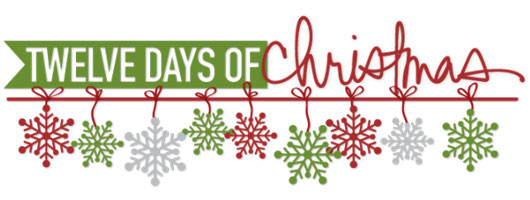
By: Laura L.W. Horan
Christmas Day – the day we celebrate the birth of our great Redeemer. Christmas celebrations around the world are unique and interesting, rich in tradition and ceremony. In parts of the Western world, you will find references to the Twelve Days of Christmas and Three Kings Day which are celebrated in much of Europe.
The Twelve Days of Christmas, also known as Twelfth Night, begins on December 25th with the celebration of Christ’s birth. Other religious events are celebrated each day leading up to the Eve of January 6th. Each of the twelve days is said to commemorate a notable person or an event.
Day 1: December 25th – The celebration of Jesus’ birthday
Day 2: December 26th – St. Stephen’s Day (the first Christian martyr) and Boxing Day
Day 3: December 27th – St. John the Apostle, one of Jesus’ disciples
Day 4: December 28th – The Feast of the Holy Innocents, the remembrance of the baby boys King Herod commanded to be killed during his search for the newborn Christ (Matthew 2:16-17)
Day 5: December 29th – St. Thomas Becket, murdered for challenging the king’s authority over the church
Day 6: December 30th – St. Egwin of Worcester
Day 7: December 31st – New Year’s Eve
Day 8: January 1st – New Year’s Day and remembrance of Mary, the mother of Jesus
Day 9: January 2nd – St. Basil the Great and St. Gregory Nazianzen (or St. Gregory of Nazianzus)
Day 10: January 3rd – Feast of the Holy Name of Jesus
Day 11: January 4th – St. Elizabeth Ann Seton
Day 12: January 5th – Epiphany Eve, the Twelfth Night
The Feast of the Epiphany occurs each January 6th and marks the end of the Twelve Days of Christmas.
Also known as Three Kings Day, the Epiphany celebrates the revelation of God in human form to the three magi, or three kings, who visited baby Jesus (Matthew 2:1-12, the three wise men). Often holding positions as priests, scholars, and astronomers, the magi were men of wealth, status and integrity. These men were students of history and prophecy, so when they studied the heavens and saw the Star of Bethlehem, these educated men knew what it represented.
Legend has it that the names of those three famous kings were:
- Melchior, King of Arabia, who brought a gift of gold,
- Gaspar (Casper, Kasper), King of Sheba, bearing Frankincense (a costly incense or perfume), and
- Balthazar, King of Tarse and Egypt, who brought myrrh (an oil used as incense and medicine)
Each gift had a significant representation in Jesus’ life. Gold, associated with kings, was given to recognize Him as King of Kings. Frankincense was an anointing oil used in worship and a fragrant offering given to the Lord, which Jesus would one day fulfil in human form. Used as an embalming fluid and as a sweet smelling distraction from the odor of the body’s decay, myrrh was a gift symbolic of Jesus’ death (though He would rise again in 3 days).
Though the Twelve Days of Christmas and Three Kings Day may differ from our usual Christmas traditions, they are beautiful and significant celebrations meant to honor and remember our Savior – His birth, His life, His death, and His resurrection. Regardless of how or when we celebrate, may we show His love to others this Christmas season.



